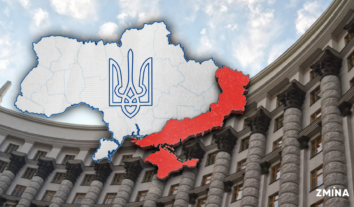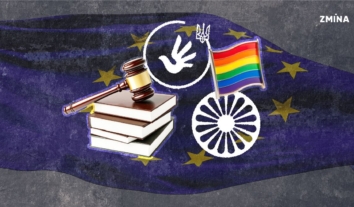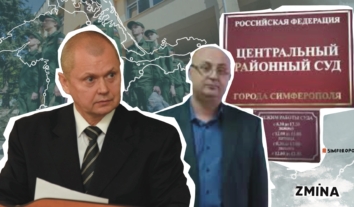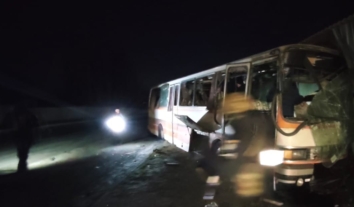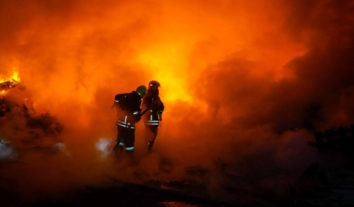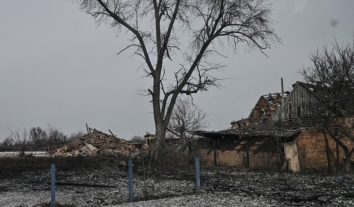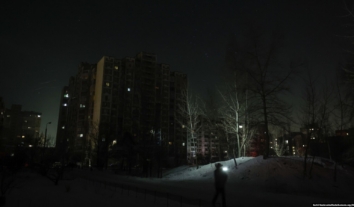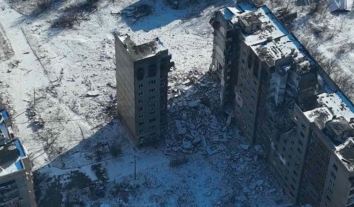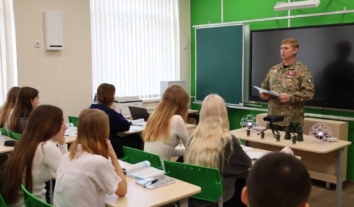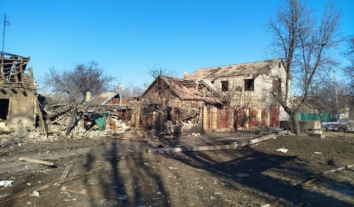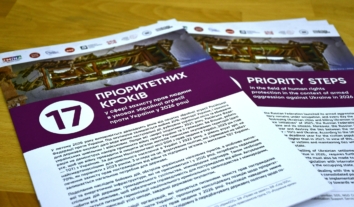How should Ukraine respond to court decisions issued during the occupation?
In the process of reintegrating the liberated territories, one of the biggest challenges for the state of Ukraine will be to regulate the quasi-legal actions that took place during Russia’s occupation.
Government agencies and experts are currently deliberating how Ukrainian authorities should respond to these challenges to ensure the protection of human rights, the interests of its citizens, and the rule of law to restore the legal regime in the liberated territories.
Judges, prosecutors, and human rights activists shared their vision during the discussion “What should be the state’s approach to court decisions made during the occupation after the liberation of the territories of Ukraine?” organized by the ZMINA Human Rights Center.

The final fate of illegitimate documents issued in the occupied territories is a significant challenge for Ukraine, which, as experts explain, the state cannot ignore. This complex issue concerns not only personal documents such as passports, birth, death, or marriage certificates but also court decisions that affect the rights of citizens.
“The ‘court decisions’ made in the temporarily occupied territories, in retrospect, are a reintegration issue. We cannot in any way deny that there was life in the occupation, that people got married, had children, and died there. These are things that are regulated by nature, not by law,” explains Kostiantyn Kharakoz, a judge of the Civil Court of Donetsk Oblast and a member of the Board of the Association for the Development of Judicial Self-Government of Ukraine.
Experts emphasize that restoring legal reality is essential to the reintegration and restoration process of Ukraine’s sovereignty in the liberated territories. The Mission of the Autonomous Republic of Crimea and several state bodies, NGOs, and experts involved in reintegrating the temporarily occupied territories (TOT) began developing reintegration policies and priority measures in 2023. The expert group is actively working on a policy of verification of “documents” and decisions of the occupation authorities.
Currently, the Ukrainian legal framework does not recognize the illegal occupation structures, including the “courts” in the TOT, and therefore does not recognize the “documents” there. The legislator enshrined this precise position in April 2014 in the Law “On Ensuring the Rights and Freedoms of Citizens and the Legal Regime in the Temporarily Occupied Territory of Ukraine.” At the same time, the law provides the general state policy framework to support and ease the de-occupation of the temporarily occupied territory and ensure the protection of rights, freedoms, and legitimate interests of individuals and legal entities affected during Russia’s occupation.
Over the years of Russian aggression, the state has demonstrated different approaches to different “documents,” according to Daria Svyrydova, an expert on “Ukraine. 5 AM Coalition.” Law enforcement agencies and courts consider and examine illegal “documents,” including decisions of the occupation “courts” that confirm or serve as evidence in proceedings on crimes against national security, international crimes, and human rights violations. In her opinion, although this indicates more flexible approaches, many positions on a particular issue remain uncertain.
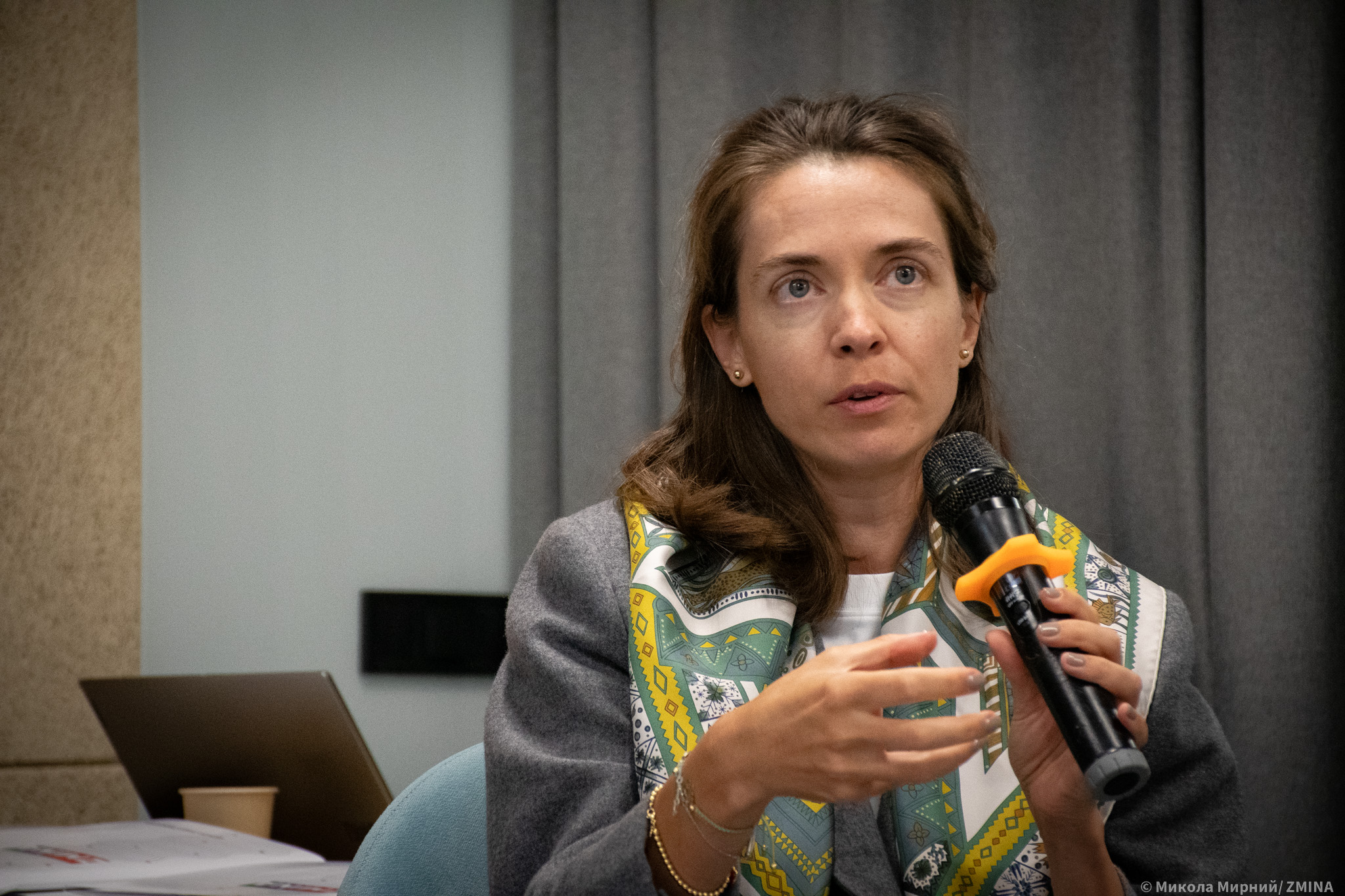 Daria Svyrydova, a human rights defender
Daria Svyrydova, a human rights defenderAccording to the Representative Office of the President of Ukraine in the Autonomous Republic of Crimea, as of 2022, illegal “courts” alone have considered about 1.2 million civil and so-called arbitration cases in the temporarily occupied Crimea. More than 100 thousand decisions were made in criminal cases. Daria Svyrydova believes that the state could not disregard the context of such a large number of “documents” generated in the TOT, which will increase with each month of temporary occupation.
Many court decisions and documents that have emerged in the occupied territories require a strategy for verifying and restoring legal reality. Human rights activists believe that Ukraine should already develop mechanisms for restoring legal validity and a vision of verifying “documents” issued in the TOT that would answer how state authorities should deal with void cases and “documents” issued by the occupation authorities. Because this would directly affect the rights of citizens after the liberation of the territories, and without answers to these questions, people would be afraid of de-occupation, explains Daria Svyrydova:
“Policies and strategies for verification of these decisions need to be developed so that they are as efficient and safe as possible, especially for the civilian population… They should state that this verification should not contradict Ukraine’s international obligations.”
According to the expert, such a strategy should consider the Russians’ change in the structure of the judicial system in the TOT and the use of Russian legislation, which formed the basis of the “decisions” contrary to international humanitarian law.
Svyrydova believes the state should acknowledge that ignoring this issue will have dire consequences for the reintegration of the population and the protection of civilian rights in the liberated territories.
“The lack of a state position on such “documents” concerning ordinary citizens, which arose, for example, due to internal property disputes or family relations, creates another huge block of fears of the civilian population before the de-occupation of our territories. This will create another element of internal resistance among civilians there who fear returning to the Ukrainian state’s jurisdiction,” said the human rights activist.
In particular, to process such a large number of “documents,” it is necessary to prepare a sufficient number of personnel with the appropriate knowledge and financial incentives.
Cataloging “solutions” and reviewing them seems challenging for Kostiantyn Kharakoz. He also stresses the need for time, financial, and human resources.
Daria Svyrydova is convinced that the state can already come up with a format that would encourage civilians to file online, declare “documents” that people were forced to receive during the occupation to protect their rights, including property rights, and record information from them in Ukrainian registers, taking into account security risks. Such mechanisms would help Ukraine process documents more quickly.
Criminal cases initiated by the occupiers
Vitaliy Sekretar, First Deputy Head of the Prosecutor’s Office of the Autonomous Republic of Crimea and the city of Sevastopol, said that the prosecutor’s office has its vision of the above policy, which was influenced by the experiences of Croatia and Germany and the process for rehabilitation of victims of political repression in the USSR. According to him, it is impossible to create a universal mechanism for dealing with criminal cases based on the example of just one country that has had experience with the occupation of its territories.
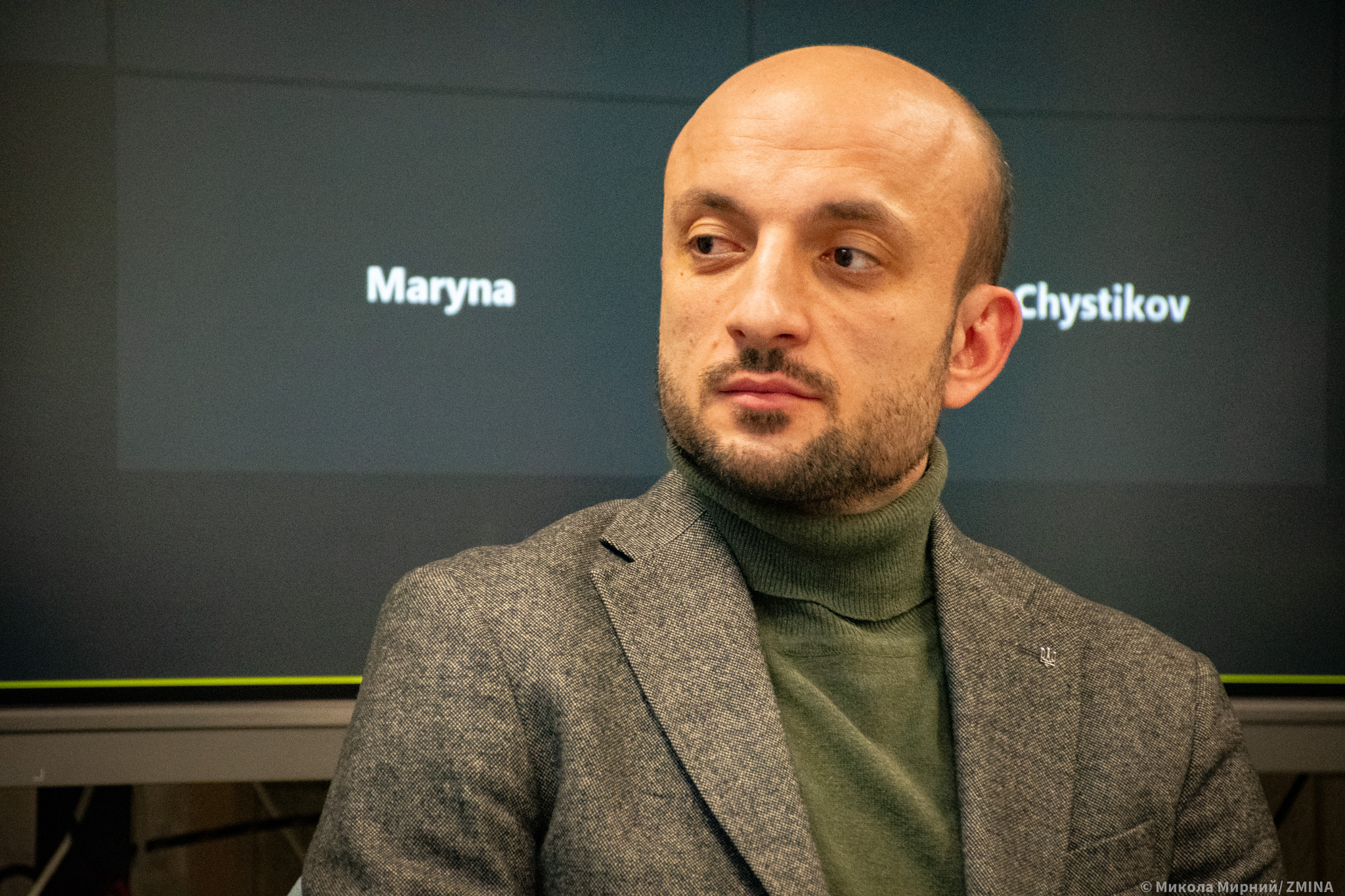 Vitaliy Sekretar, First Deputy Head of the Prosecutor’s Office of the Autonomous Republic of Crimea and the city of Sevastopol
Vitaliy Sekretar, First Deputy Head of the Prosecutor’s Office of the Autonomous Republic of Crimea and the city of Sevastopol“There will not be a universal mechanism we can put on like a sock and make it fit perfectly. As the first step, we see the task of creating a framework, a concept of key points that the state will need to adopt at the legislative level,” said Vitaliy Sekretar.
In his opinion, the main challenges in creating such a framework would include:
- The fate of criminal proceedings before 2014 in Crimea.
- The issue of Russian criminal proceedings initiated by the occupiers in the temporarily occupied territories.
Not only Russian war crimes are committed in the TOT, but also common crimes, such as murders, robberies, hooliganism, and fatal road accidents. As Vitaliy Sekretar commented, the victims of these crimes would not understand if the state of Ukraine turned a blind eye to these types of offenses with the wording of non-recognition of the verdicts of the occupation “courts” and the criminals at large. Such an approach will lead to a collapse in reintegration when victims realize that the state will not protect them from crimes.
Maria Palayeva, Judge of the Pechersk District Court of Kyiv, present at the event, thinks that the state should take into account decisions issued during the occupation and develop a specific algorithm of actions to ensure the realization of the rights and protection of the interests of Ukrainian citizens in the de-occupied territories as part of the reintegration process.
“Today, all procedural codes [in Ukraine] have a procedure for recognizing foreign court decisions, which is used in court practice. I see no obstacles to developing a corresponding procedure on such a basis,” the judge said.
The Autonomous Republic of Crimea Prosecutor’s Office also asks for a transitional period during which victims can apply to law enforcement or the court to reopen criminal proceedings. In addition, Vitaliy Sekretar acknowledges that the limitations for criminal cases related to TOT need to be resolved.
He believes that law enforcement officers would have to pay attention to the compliance of decisions and evidence collected by the occupation forces in the TOT. Ukrainian judges would also have to make a thorough assessment of this information. Kostiantyn Kharakoz also emphasized ensuring fair trial standards when reviewing criminal cases.
In addition, it will be essential to ensure fairness before the law for all individuals, regardless of the legislation under which they were convicted. To this end, the authorities would need to establish mechanisms to resolve inconsistencies in sanctions and court sentences.
Sentences issued by “courts”
Kostiantyn Kharakoz points out that developing any policy framework document, such as one on which the authorities are currently working, is an important step. Still, it is only the beginning of the journey.
He also believes that this policy should consider the diversity of cases and administrative units subjected to occupation and whether it was possible for Ukrainian citizens to find justice in the occupation. Kharakoz said that the “decisions” of the occupation “courts” cannot be perceived as an act of justice. Unlike Russia, which he calls a “police state,” Ukrainian courts adhere to the European Court of Human Rights (ECtHR) standards and, separately, to the standard of judicial independence.
Kostiantyn Kharakoz emphasizes the issue of political persecution, and such criminal cases will be a priority for Ukraine.
Vitaliy Sekretar proposes to resolve this issue, in particular, by identifying those criminal proceedings and articles of the Criminal Code of the Russian Federation that were applied to Ukrainian citizens and do not exist in Ukraine’s Criminal Code.
Currently, there is an approach that residents of the liberated territories will have the right to apply to Ukrainian courts to obtain a new decision to replace the one issued by an illegal “court” under occupation.
Daria Svyrydova also points to several violations in the occupation justice system. Among them is the enormous pressure exerted by Russian security forces on the lawyers’ community in Crimea and any absence of independent lawyers in criminal proceedings.
“Not politically motivated cases, but ordinary commercial and criminal cases are also likely to be reviewed due to significant violations of fair justice standards and the right to defense. Both the accused and the victims will demand a review. Both parties may be dissatisfied, and they will demand that justice be continued in their case,” Svyrydova said.
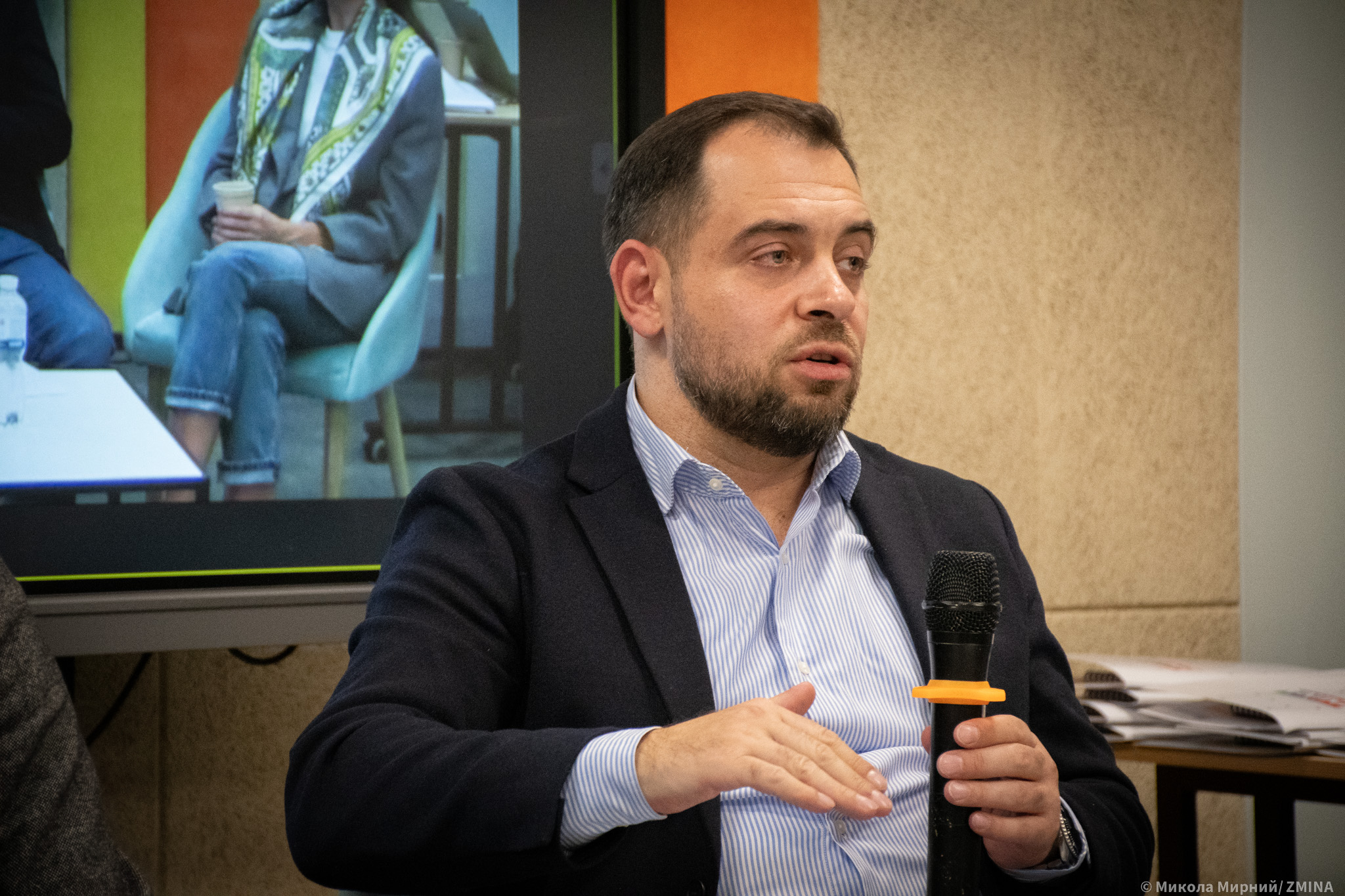 Kostiantyn Kharakoz, a judge of the Civil Court of Donetsk Oblast and a member of the Board of the Association for the Development of Judicial Self-Government of Ukraine
Kostiantyn Kharakoz, a judge of the Civil Court of Donetsk Oblast and a member of the Board of the Association for the Development of Judicial Self-Government of UkraineNamibia exception
Hanna Khrystova, a human rights defender, pointed out that the “Namibia exception” in the judgment of the International Court of Justice on Namibia states that documents issued by the occupying power should be recognized if their non-recognition leads to severe violations or restrictions of citizens’ rights. The ECtHR also expressed its position and interpretation of these exceptions in Cyprus v. Turkey. It considered the legality of entering data into civil and land registers, the legality of marriages, and the legality of civil judges’ decisions issued during the occupation.
“This decision refers to a strict distinction between the de facto authorities that occupied the relevant territories and the actions and rights of private individuals. In this concept, the actions of private individuals, legal entities under private law, and private interests cannot be attributed to the occupying authorities,” she explained.
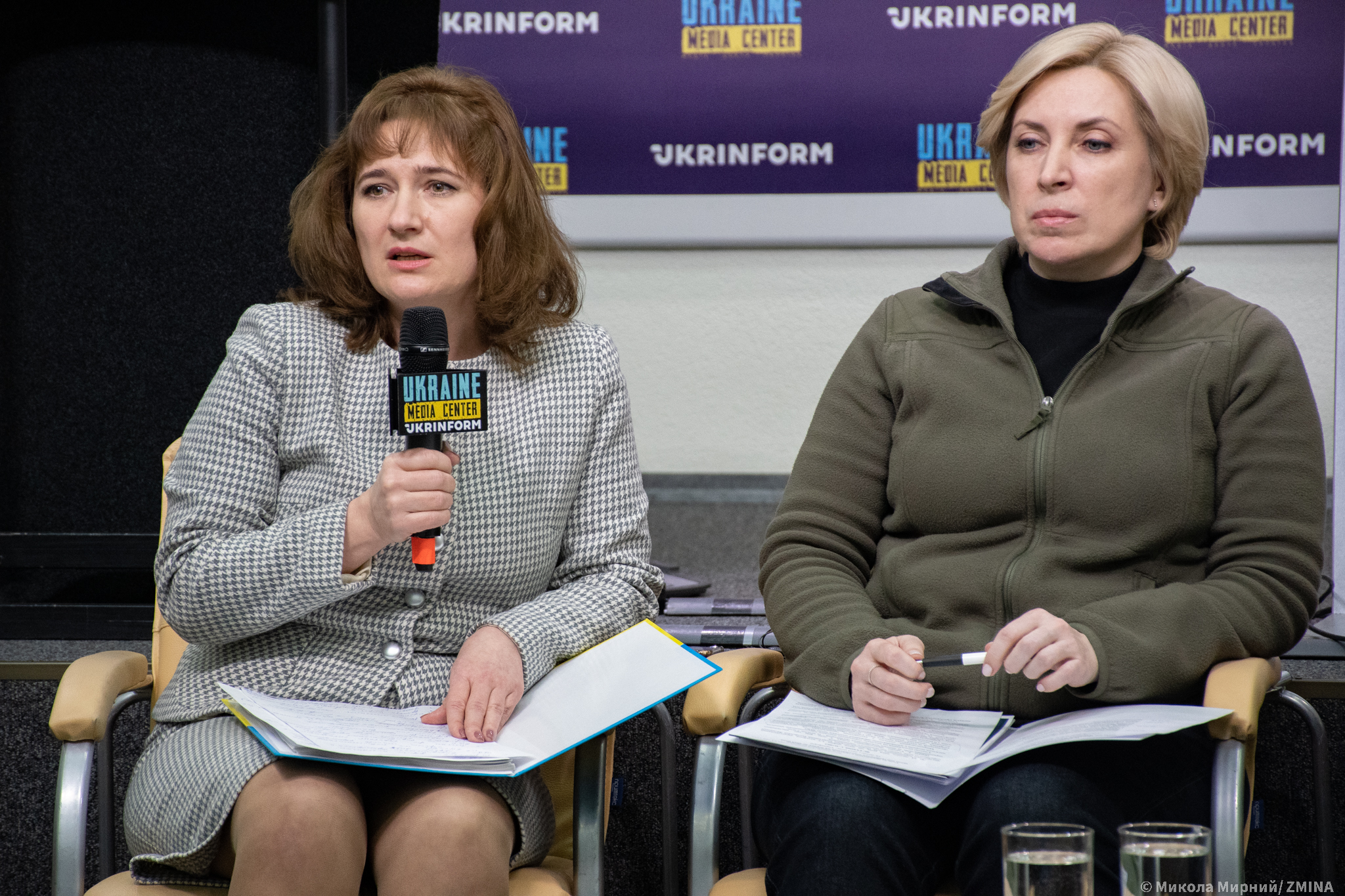 Hanna Khrystova (left), a human rights defender, and Iryna Vereshchuk (right), Vice Prime Minister – Minister for Reintegration of the Temporarily Occupied Territories of Ukraine
Hanna Khrystova (left), a human rights defender, and Iryna Vereshchuk (right), Vice Prime Minister – Minister for Reintegration of the Temporarily Occupied Territories of UkraineHanna Khrystova explains that the occupied territories are subject to The Fourth Geneva Convention, which addresses the responsibilities of the occupying power, such as Russia in Crimea, which imposes on the occupying power the responsibility for maintaining law and order in the occupied territory by all means, including through the activities of the law enforcement and judicial systems.
In its judgment, the ECHR also emphasizes that this approach to documents issued during the occupation does not legitimize a regime outside the law of international law.
“This approach should certainly be considered a standard part of Ukraine’s European today and tomorrow. Ignoring this approach contradicts Ukraine’s European integration policy. This does not mean that this approach dictates specific decisions. They have to be determined by Ukraine,” said Hanna Khrystova.
Ultimately, the final approaches to these challenges, according to Vitaliy Sekretar, should be crystallized in discussions to ensure that all stakeholders’ positions are represented. Experts are convinced that such talks should not be delayed, as such complex reintegration models cannot be formed reactively from today to tomorrow. After all, these models and mechanisms need to be tested before they become part of the national policy.
The material was prepared with the support of the European Union and the International Renaissance Foundation within the framework of the joint initiative “European Renaissance of Ukraine.” The material represents the position of the authors and does not necessarily reflect the position of the European Union or the International Renaissance Foundation.


